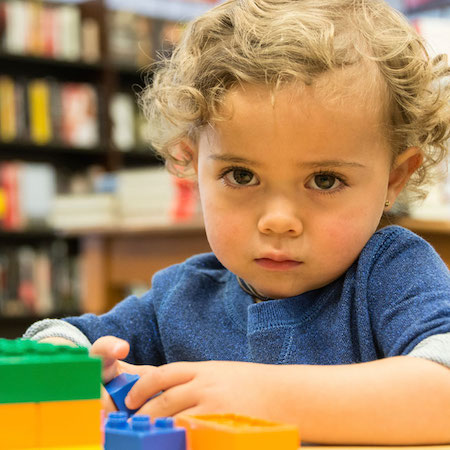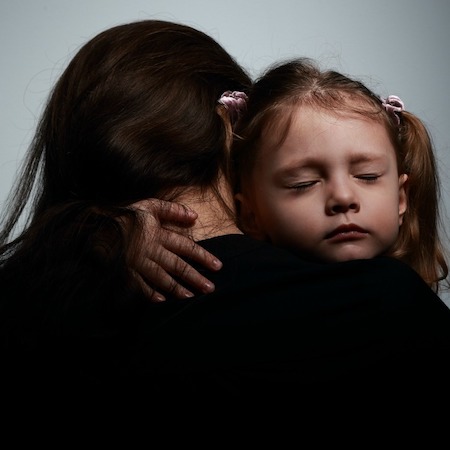Counseling Children and Youth

Even under the best of circumstances, it can be hard to tell the difference between challenging behaviors and emotions that are consistent with typical child development and those that are cause for concern. It is important to remember that many disorders like anxiety, attention deficit hyperactivity disorder, and depression, do occur during childhood. In fact, many adults who seek treatment reflect back on how these disorders affected their childhood and wish that they had received help sooner. In general, if a child’s behavior persists for a few weeks or longer, causes distress for the child or the child’s family, and interferes with functioning at school, at home, or with friends, then consider seeking help. If a child’s behavior is unsafe, or if a child talks about wanting to hurt him or herself or someone else, then seek help immediately.
Young children may benefit from an evaluation and therapy if they:
- Have frequent tantrums or are intensely irritable much of the time
- Often talk about fears or worries
- Complain about frequent stomachaches or headaches with no known medical cause
- Are in constant motion and cannot sit quietly (except when they are watching videos or playing videogames)
- Sleep too much or too little, have frequent nightmares, or seem sleepy during the day
- Are not interested in playing with other children or have difficulty making friends
- Struggle academically or have experienced a recent decline in grades
- Repeat actions or check things many times out of fear that something bad may happen.
Older children and adolescents may benefit from an evaluation or therapy if they:
- Have lost interest in things that they used to enjoy
- Have low energy
- Sleep too much or too little, or seem sleepy throughout the day
- Are spending more and more time alone and avoid social activities with friends or family
- Fear gaining weight, or diet or exercise excessively
- Engage in self-harm behaviors (e.g., cutting or burning their skin)
- Smoke, drink, or use drugs
- Engage in risky or destructive behavior alone or with friends
- Have thoughts of suicide
- Have periods of highly elevated energy and activity, and require much less sleep than usual
- Say that they think someone is trying to control their mind or that they hear things that other people cannot hear.
An evaluation by Dr. Martin Wesley can help clarify problems that may be underlying a child’s behavior and provide reassurance or recommendations for next steps. It provides an opportunity to learn about a child’s strengths and weaknesses and determine which interventions might be most helpful.
A comprehensive assessment of a child’s mental health includes the following:
- An interview with parents addressing a child’s developmental history, temperament, relationships with friends and family, medical history, interests, abilities, and any prior treatment. It is important to get a picture of the child’s current situation, for example: has he or she changed schools recently, has there been an illness in the family, or a change with an impact on the child’s daily life.
- Information gathering from school, such as standardized tests, reports on behavior, capabilities, and difficulties.
- An interview with the child about his or her experiences, as well as testing and behavioral observations, if needed.
Assessment results may suggest that a child’s behavior is related to changes or stresses at home or school; or is the result of a disorder for which treatment would be recommended. Treatment recommendations may include:
Counseling or Psychotherapy (“talk therapy”). There are many different approaches to psychotherapy, including structured psychotherapies directed at specific conditions. Dr. Wesley can discuss these options with you. Effective counseling for children will includes:
- Parent involvement in the treatment (especially for children and adolescents
- Teaching skills and practicing skills at home or at school (between session “homework assignments”)
- Measures of progress (e.g., rating scales, improvements on homework assignments) that are tracked over time.
Medications. Dr. Wesley may also recommend that your child be evaluated for possible medications. While medications are often prescribed way too often in American, for some it is necessary to function. Medications are never an answer by themselves but should only be used along with counseling. As with adults, the type of medications used for children depends on the diagnosis and may include antidepressants, stimulants, mood stabilizers, and others. Dr. Wesley will coordinate treatment with your physician or psychiatrist.
Family counseling. Including parents and other members of the family in treatment can help families understand how a child’s individual challenges may affect relationships with parents and siblings and vice versa.
Support for parents. Individual or group sessions that include training and the opportunity to talk with other parents can provide new strategies for supporting a child and managing difficult behavior in a positive way. The therapist can also coach parents on how to deal with schools.
If your child has behavioral or emotional challenges that interfere with his or her success in school, he or she may be able to benefit from plans or accommodations that are provided under laws originally enacted to prevent discrimination against children with disabilities. Dr. Wesley can help you communicate with the school. A first step may be to ask the school whether an individualized education program or a 504 plan is appropriate for your child. Accommodations might include simple measures such as providing a child with a tape recorder for taking notes, permitting flexibility with the amount of time allowed for tests, or adjusting seating in the classroom to reduce distraction. There are many sources of information on what schools can and, in some cases, must provide for children who would benefit from accommodations and how parents can request evaluation and services for their child.

ADHD
ADHD or Attention Deficit Hyperactivity Disorder is marked by the inability to maintain your focus, or attention, for periods of time and this persists as a pattern in your life. Hyperactivity involves the idea of fidgeting and not being able to be still, always feeling the need to move around even in situations where it is not appropriate.
You will most often hear ADHD referenced in regard to children; however, adults may also have this diagnosis. Because so many of us are well aware of ADHD, we have simply created a list of resources that will give you information you may be seeking on the disorder.
Dr. Wesley has worked with many children over the years who have been diagnosed with ADHD. He has assisted in intervening in the educational system to help parents navigate through the protocol there to help a child obtain the resources he needs to be successful. He also has some creative ideas to use with children that really work! And to be most successful, he always involves the parents in some of the sessions and with the “homework” assigned. A multi factor approach assists in creating a better outcome.
Autism
Autism or autism spectrum disorder (ASD) is a developmental disorder that affects communication and behavior. Although autism can be diagnosed at any age, it is described as a “developmental disorder” because symptoms generally appear in the first two years of life.
Autism is known as a “spectrum” disorder because there is wide variation in the type and severity of symptoms people experience.
ASD occurs in all ethnic, racial, and economic groups. Although ASD can be a lifelong disorder, treatments and services can improve a person\’s symptoms and ability to function. The American Academy of Pediatrics recommends that all children be screened for autism. All caregivers should talk to their child\’s doctor about ASD screening or evaluation.
For more information, please review the following resources:


Teen Depression
Being a teenager can be tough. There are changes taking place in your body and brain that can affect how you learn, think, and behave. And if you are facing tough or stressful situations, it is normal to have emotional ups and downs.
But if you have been overwhelmingly sad for a long time (a few weeks to months) and you’re not able to concentrate or do the things you usually enjoy, you may want to talk to a trusted adult about seeing a counselor for Depression.
Children and Trauma
Each year, children and adolescents experience disasters and other traumatic events. Parents, rescue workers, and members of the larger community can help children start the process of recovery and overcome these experiences. However, it is also important to immediately seek help from a mental health professional.
When people think of trauma, they often focus on physical injuries. However, people also can experience psychological trauma after witnessing or experiencing distressing events.
Trauma can be caused by natural disasters such as hurricanes, earthquakes, and floods. It also can be caused by acts of violence—such as terrorist attacks and mass shootings—as well as motor vehicle and other accidents. in can also be caused by family conflict and fighting.
Reactions to trauma can be immediate or delayed. Responses may differ in severity and can include a wide range of behaviors and responses, sometimes influenced by culture.


